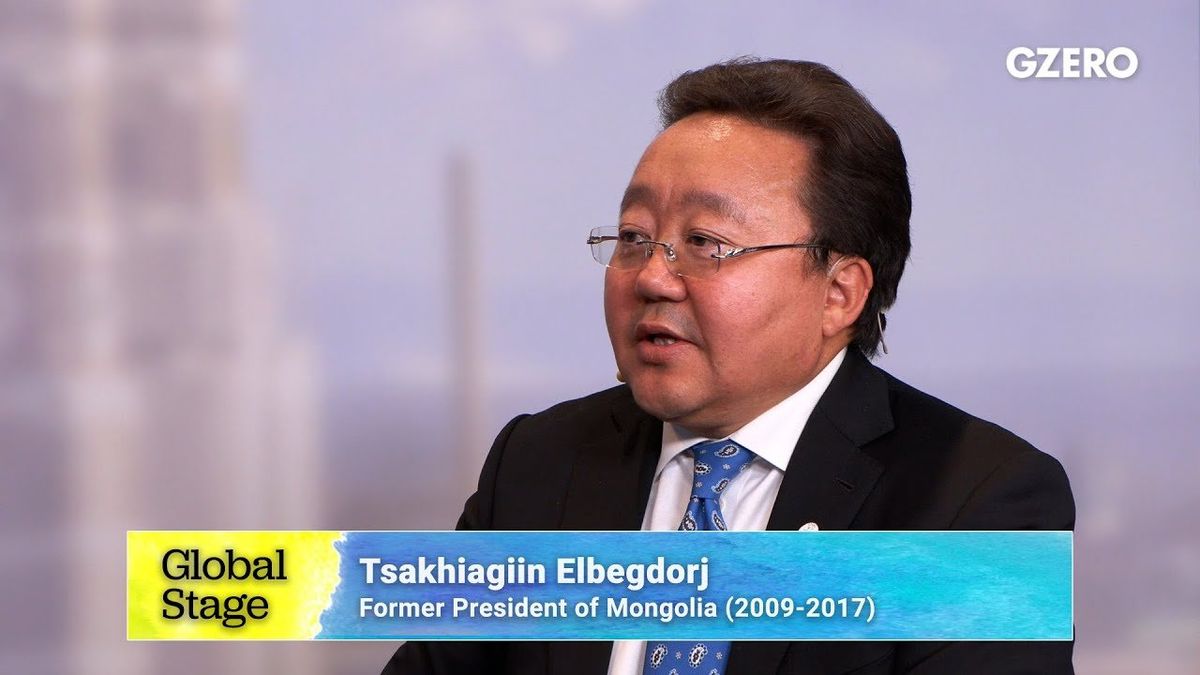After a peaceful revolution in 1990, Mongolia established a democracy that remains strong today. Freedom House, a nonprofit devoted to promoting democracy globally, rates Mongolia as “free,” with high marks for both political rights and civil liberties.
Tsakhiagiin Elbegdorj is one of the founders of Mongolia’s democracy and served as both President and Prime Minister of his nation. As he continues to advocate for freedom globally, he’s speaking out about the importance of supporting Ukraine’s struggle against Russian aggression.
At the Munich Security Conference, President Elbegdorj sat down with GZERO’s Tony Maciulis to talk about a country sandwiched between Russia and China, what Vladimir Putin is really like, and this vulnerable moment for democracy.
More about our Global Stage interviews.

















